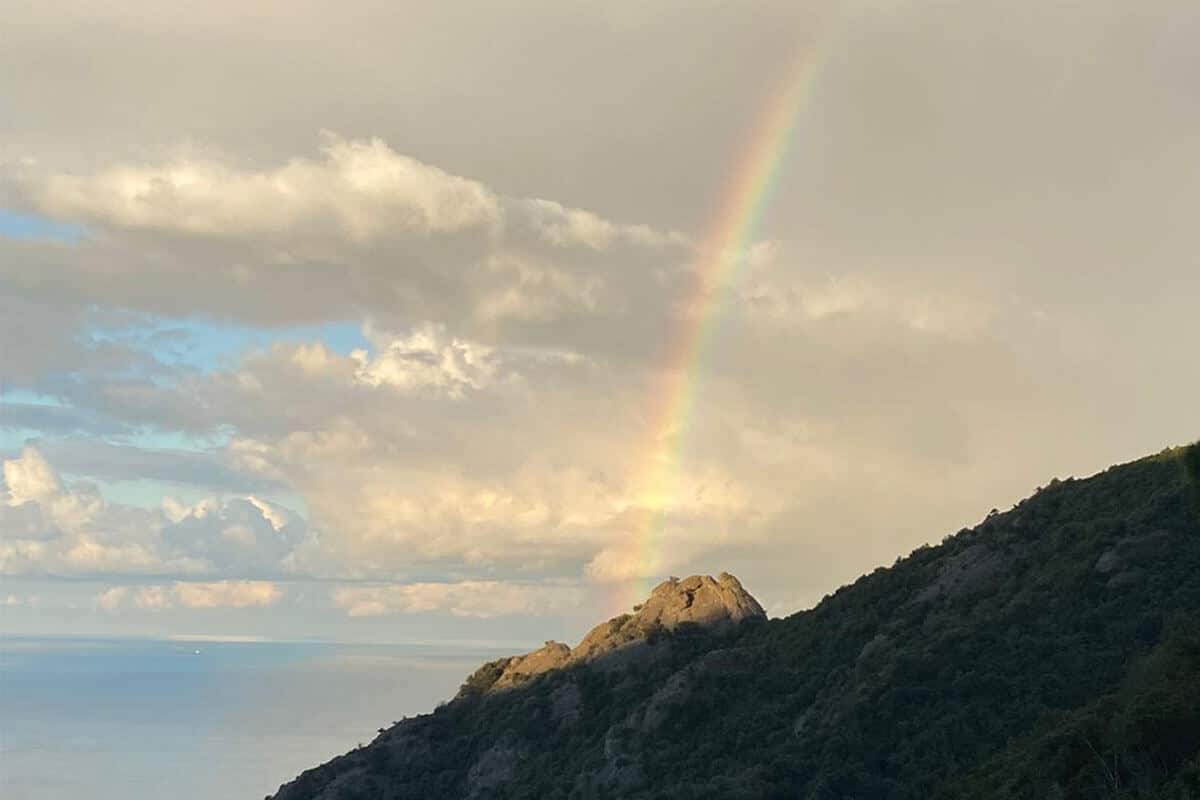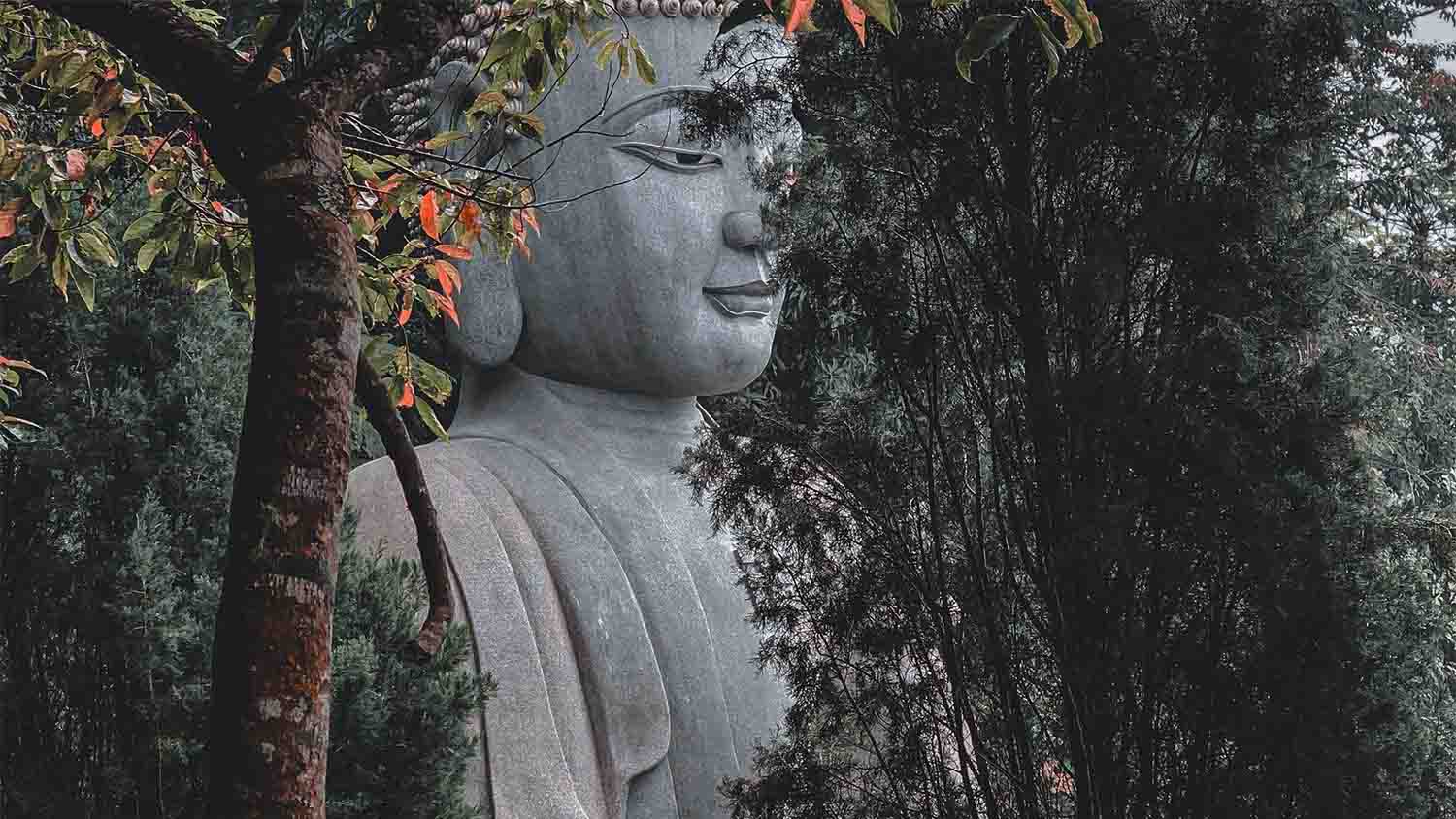At the end of every year, I write down 100 things I’m grateful for or appreciate. I invite you to do the same.
This practice helps me see what I’ve achieved in a year, and more importantly, it humbles me to recognize how deeply I’m supported in my purpose, which, in turn, motivates me for the next year—to transcend my ideals and to open myself to new possibilities.
(You can also add a loving-kindness meditation to strengthen feelings of kindness and connection to others and clear your mind before you start. These two exercises together are a great way to close and complete a significant chapter in one’s life.)
While every year has its unique struggles (ugh 2020), at this moment I’m able to see how I’ve been helped and guided by friends, teachers, fellows, you who are reading this, and forces much larger than myself.
I achieved a lot this year despite COVID.
I managed to start the Morning Mist Buddhist Temple in North Carolina, finish writing a novelette The Icons of St. Mark’s, keep Bodhi Heart (our temple’s health-and-wellness practice) alive, host an eight-month-long Cultivating Awareness meditation class, and start a new writing project exploring my personal journey to Buddhism.
I’m also fortunate enough to be working with extraordinary people. I’m grateful for their trust and for our work together. This year, in addition to the many people I’ve seen transform through Rolfing, I’ve also watched a number of people make significant changes in their lives through spiritual coaching.
One of the people with whom I’m honored to be working has moved to Italy and is starting a new life-chapter inspired by the Mediterranean’s calm wisdom, sibilant rhythms, and sempiternal majesty. Another inspiring person is deeply and meaningfully reorganizing her company division’s systemic structures to support peoples’ well-being, morale, and happiness.
Others are leaving corporate environments to build freer careers for themselves with the kind of confident, thorough sense of purpose and direction that ensures they’ll succeed.
Few people see their dreams through to completion
What I’ve noticed in working with people on spiritual matters for more than 15 years is that very few of those who come to me for spiritual guidance trust their dreams enough to bet their lives on those dreams and see them through to completion.
Part of this tendency is that people don’t often comprehend—or they underestimate—what it will take to become, say, a supermodel, celebrity, or enlightened master. It’s not that these ranks are impossible to attain, but they require an enormous amount of talent, discipline, passion, will, energy, and luck.
And most of the people who want to attain these things are not raised in a culture or environment that well enough understands the necessary methods, standards, cooperation, mentoring, coaching, and networking required to reach such heights.
We might never know what they—our true gifts—are
We—Americans in particular—have grown up in a Romantic culture that celebrates the isolated genius. And sometimes we read about characters like Lin-Manuel Miranda (the creator of Hamilton), or Beethoven as if these person’s works shot to popularity solely by virtue of their inspired artistic quality. I don’t know about Miranda, but it seems that Beethoven tirelessly networked and socialized to have his music performed. One has to hustle.
Spiritual attainment is the same. Varying levels of skill and practice exist in all fields of human endeavor: cooking, writing, painting, carpentry, gardening, car repair, sports, marketing, etc.—do-it-yourselfers and hobbyists are not professionals—until they are.
Born as we are under the high-flying banner of equality, Americans believe that any endeavor is open for mastery. But this isn’t true. We have different talents, strengths, and abilities. And we tend to think that we ought to do with our life the thing that we’re good at. But this idea is fraught with complications, because let’s say we have a talent for Buddhism, yet we are raised in an environment without a Buddhist teacher, without Buddhist culture or understanding. Or let’s say we have a talent for literature, but no one around us reads.
There is no one to discuss the form of a poem, or the tradition of poetic forms, or the point and purpose of literature.
Similar to gardening. Perhaps we love plants, flowers, and trees, but we haven’t the faintest idea about when or how to plant an azalea or magnolia. In short, our various talents and abilities require specific conditions to grow.
And without these specific conditions to excite and bring our unique talents and passions to light, we might never know what they—our true gifts—are.
However, the topic of how to help a thing grow—whether it’s a human being, a Buddha, or a mind— is a rarefied one. Typically, one assumes this matter is addressed by formal education. But formal education only teaches one how to participate and survive in a complex civilization that might be in danger of collapsing.
We do what we love, and what we can tolerate
In modern America, some forms of life—those that deal with large numbers and scale—are rewarded. While people who wish for a more intimate kind of life are squeezed. This includes people who might, for example, drive to a specialty nursery in Georgia for an azalea, or travel through the Smokey Mountains to find a water-lily bulb to plant in one’s garden pool or those who would rather spend their days fishing. Oddly, securing the time for these activities requires a lot of money, which commits many people to a life in which they’d rather not participate.
The social-economic structure in which we live favors scale and complexity. Woe be to one who doesn’t wish to participate in such a field. They’ll certainly be shamed, punished, forgotten, and vilified. And if somehow, you lament the complexity our current society requires, your laments will likely be torn from their roots — like a wild rose — and placed on society’s coffee table, subject to middlebrow judgment.
I like both simple and complex life. I like participating in the social intricacies of New York City, but I also like time to roam freely and leisurely with my teacher through the quiet farms on the outskirts of Kyoto, and driving with him to visit a mature 600-year-old cedar as we look on at the ancient blacksmith huts of a thousand-year-old village, discussing the history and government of samurai society.
We do what we love, and what we can tolerate. And what we hold in our imagination—the narratives that have come through movies, video games, yarns from friends and family, and the stories that have been piped to us through society’s cultural organs—schools, libraries, television, news—form pictures of the kinds of lives and identities that are possible for us. We can’t be what we can’t imagine ourselves to be, which is not to say that we can always physically be what we’re able to imagine. I can imagine myself looking out of a window or taking a phone call on Air Force One. But I will never be President of the United States.
Everything should be possible
Amazingly, there is a lot of confusion on this point. One thinks that one can be anything. And yet one cannot. Most of us like to believe that everything should be possible. And yet, it’s not. What happens when we meet the fact of impossibility? If, for example, we think that we can win an election—that we should win an election—but don’t. Of course, we go along with physical reality. We obey our causation and reevaluate our possibilities. But who determines what’s possible for us? Who determines what’s real? What if my views on how to live—or how I ought to live—are inconsistent with how I’m actually living—or how I’m forced to live? How do I close this gap?
King Oedipus saved the city of Thebes by solving the Sphinx’s riddle. Then a plague came to his city because someone had murdered the state’s former king, Laius—Oedipus’s father. And only after recognizing that he, Oedipus, was the person who had murdered his father, slept with his mother, and sired two daughter-sisters—only after gouging out his eyes and exiling himself (a frail old man), did Oedipus restore to Thebes the health he had promised that ancient state’s citizens.
Sophocles warns us in this early existential drama that if we are to heal our country, we need to root out the pestilence caused by our foibles. He admonishes us to reflect and confess—to get to the bottom of who we are, at our peril, for a good greater than ourselves—for the benefit of our community, and for the integrity of life.
I hope with the help of a friend I will come to know . . .
Though I achieved a lot this year, perhaps there were costs to these accomplishments—costs of which I’m unaware. I can only hope that under the guidance and with the help of a friend—my teacher—of someone older and wiser than myself, that I will come to know what in me has contributed to others’ suffering. I’d like to move away from my habitual authoritarian declaration of myself as ruler of my kingdom and imagination, in order to know a better, more refined, more improved way. One can envy Oedipus’s courage and commitment to truth. And also, one can admire the fact that, by seeing the truth about himself, Oedipus relieved others from the suffering that was caused by his—a king’s—ignorance and folly.
André Gide worked tirelessly under the idea of disponibilité—the idea that every ideal must be transcended. How to do that? Under what guidance, circumstances, in what kind of environment, and to what end? To make one’s self available for something better. To adopt an open, receptive stance toward what’s good. Perhaps this is the basic and lasting truth of our agonistic civilization—to over and over again fashion a better world, a better truth, a better constitution—a better ground, soil, and culture for our imagination so that others can do the same.
“Be not discouraged,”wrote Walt Whitman:
“. . . keep, on, there are divine things
well enveloped
I swear to you there are divine things more beautiful than
words can tell.”






